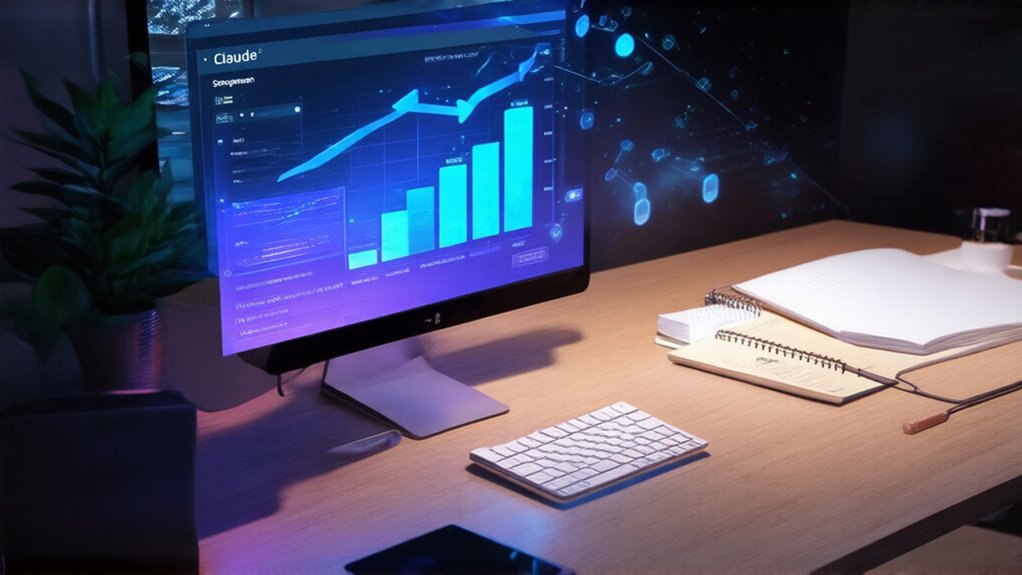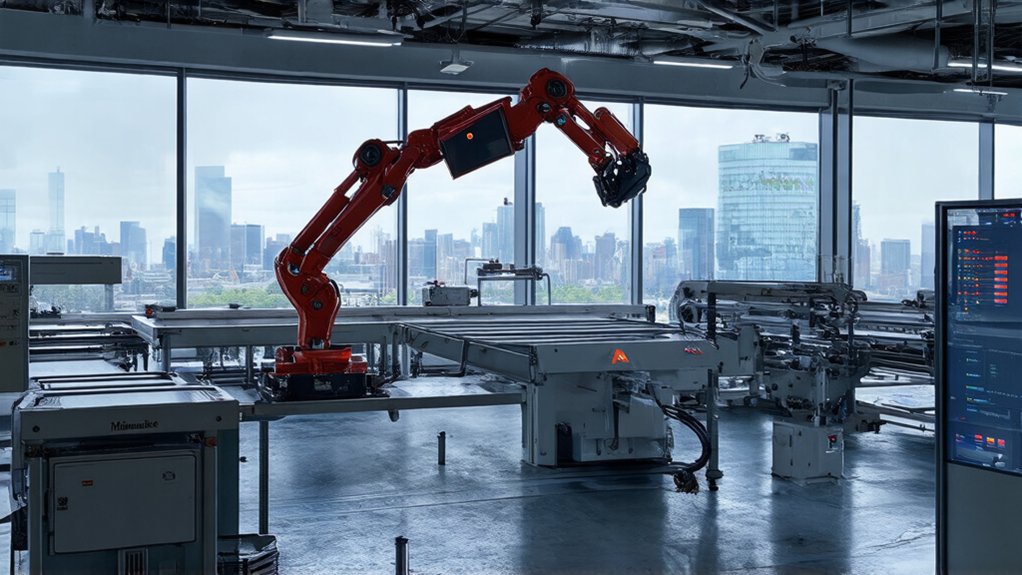As governments worldwide struggle with outdated systems and endless paperwork, AI is swooping in like a digital superhero, slashing through repetitive tasks and freeing up employees for the real brainy work. It cuts down on data entry and document processing, letting public servants tackle complex issues instead. Workflows get streamlined, wiping out bottlenecks and backlogs. Deep tech solutions are revolutionizing how government agencies approach innovation and problem-solving.
AI swoops in like a digital superhero, slashing repetitive tasks and freeing public servants for brainy work.
Oh, and applications for citizenship, grants, or permits? They’re processed faster than a caffeine-fueled bureaucrat. Deloitte’s research? It shows smart tech saves 75-95% of time on drafting reports. Talk about a game-changer—no more drowning in paperwork mountains.
But AI doesn’t stop at efficiency; it supercharges decision-making. Policymakers get heaps of data for strategic planning, spotting patterns in complex datasets. Budgeting and resource allocation become data-driven, not guesswork. Predictive analytics? It’s like having a crystal ball for natural disasters or economic shifts.
Governments can anticipate challenges, optimizing resources based on future demands. Furthermore, AI ensures efficient resource usage by analyzing complex data to identify energy conservation opportunities in public services. Sarcastic side note: Who knew machines could outthink humans at forecasting? Still, it’s a blunt reality—AI turns vague hunches into solid plans.
Citizen services are getting a major upgrade, too. AI chatbots dish out instant answers, personalizing responses from past interactions. Wait times? Gone, thanks to smart scheduling. In places like Maryland, tools streamline benefits access. For those with impairments, conversational AI makes services reachable. It’s emotional, really—imagine getting help without endless hold music. Additionally, AI fosters greater citizen engagement by enabling tailored interactions that address diverse community needs.
On the tech front, AI modernizes creaky IT systems, slashing maintenance costs that gobble up 80% of budgets. It spots bugs in old code, eases migrations, and boosts security. No more band-aid fixes; it’s a full overhaul.
Economic gains pile up as AI drives down costs and optimizes resources. It analyzes data to find energy savings in public infrastructure and predicts demographic impacts. The private sector? Less bogged down by regulations.
Public safety gets a boost, with AI detecting cyber threats faster and analyzing CCTV for suspects. Predictive policing targets crime hotspots, while fraud detection uncovers hidden patterns. Emergency routes? Optimized in real-time.
In specific sectors, AI accelerates healthcare drug discoveries and automates admin tasks. Transportation flows smoother with real-time traffic management. Law enforcement speeds up investigations, and HR nails hiring by spotting top candidates.
It’s direct: AI isn’t perfect, but it’s transforming government, one byte at a time.



